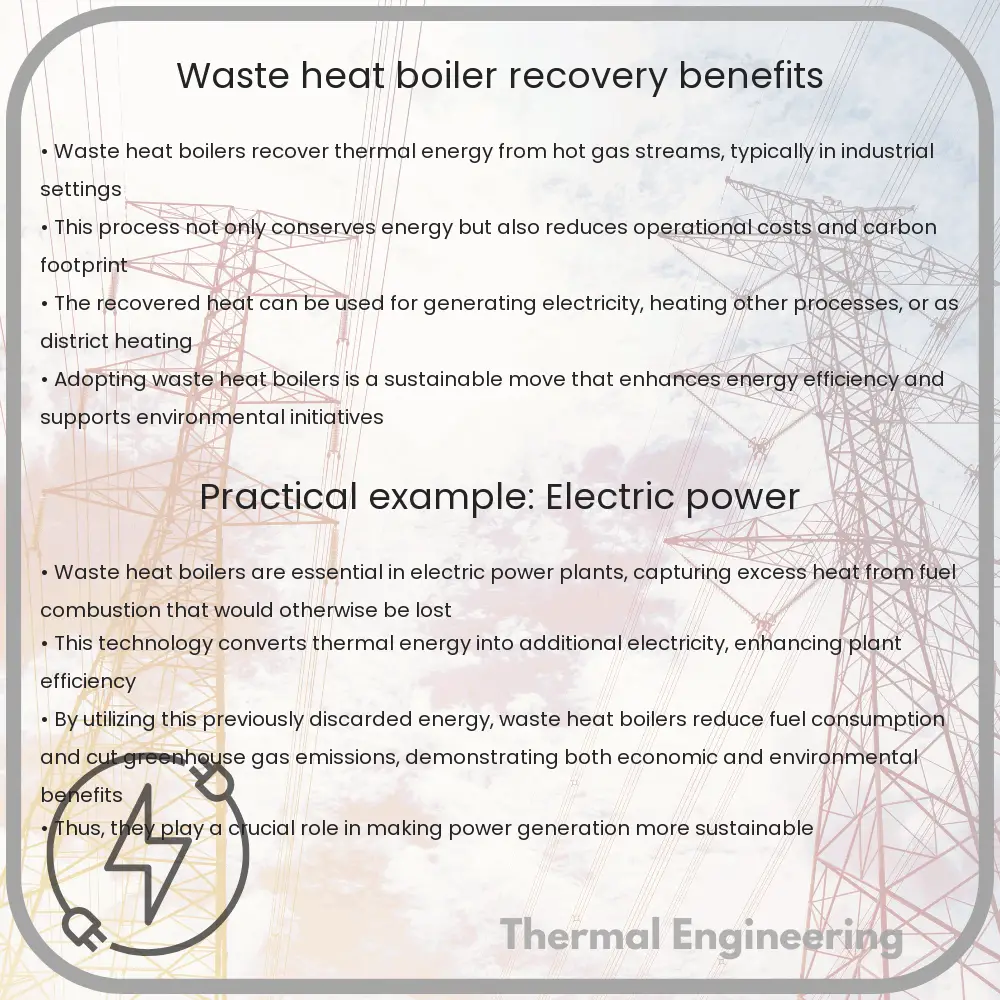Learn about waste heat boilers, devices that recover energy from industrial exhaust gases to enhance facility efficiency.

What is a Waste Heat Boiler?
A waste heat boiler, commonly recognized within industries as a heat recovery steam generator (HRSG), is a vital component used to recover energy from the exhaust gases of various operations such as gas turbines, diesel engines, or processes that generate waste heat. This recovered energy is used to produce steam that can be utilized for various industrial applications, effectively enhancing the overall energy efficiency of a facility.
How Does a Waste Heat Boiler Work?
A waste heat boiler operates by capturing the high temperature exhaust gases from industrial operations and passing it over boiler tubes filled with water. These tubes are part of a closed loop, allowing the water to absorb heat and transform into high-pressure steam. The evolved steam can then be utilized for power generation, processing, or heating, depending on the requirements of the facility.
Key Components of a Waste Heat Boiler
- Economizer: Preheats the feed water using residual heat, improving the efficiency of the system.
- Evaporator: Turns the preheated water into steam by absorbing the main body of the heat from the exhaust gases.
- Superheater: Increases the temperature of the steam above its saturation point, optimizing it for the power generating equipment.
Benefits of Using a Waste Heat Boiler
- Enhanced Energy Efficiency: By recovering waste heat, facilities can substantially reduce fuel consumption, leading to reduced energy costs and dependency on external power sources.
- Emission Reduction: Utilizing waste heat reduces the need to burn additional fossil fuels, leading to lower emissions of CO2, SOx, and NOx, which are significant contributors to air pollution and climate change.
- Cost Savings: The reduction in energy consumption directly translates to significant cost savings in terms of reduced energy bills and operational costs.
- Increased Process Efficiency: Heat recovery systems streamline various industrial processes by providing necessary heating or processing steam without extra energy input.
Applications of Waste Heat Boilers
Waste heat boilers find applications across a range of industries including:
- Power generation plants, where they utilize exhaust from gas turbines and diesel engines to generate additional power.
- Chemical plants, where they recover heat from chemical reactions to produce steam for heating or other process requirements.
- Steel mills, where they capture heat from the hot gases emitted from iron and steel production processes.
- Oil refineries, which employ waste heat boilers to recover energy from the refining processes.
Conclusion
Waste heat boilers play a pivotal role in enhancing energy efficiency, reducing operational costs, and contributing to environmental sustainability in industrial settings. By effectively harnessing the otherwise wasted energy, these systems provide a cost-effective solution for energy management in industries, making them an indispensable component in modern industrial operations.